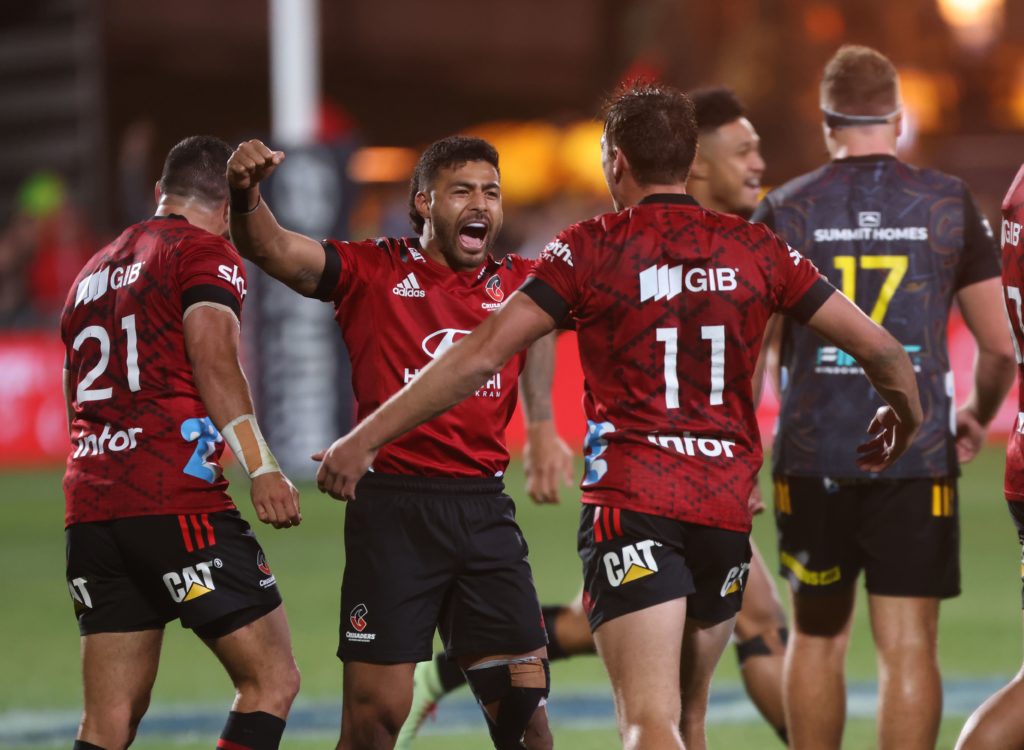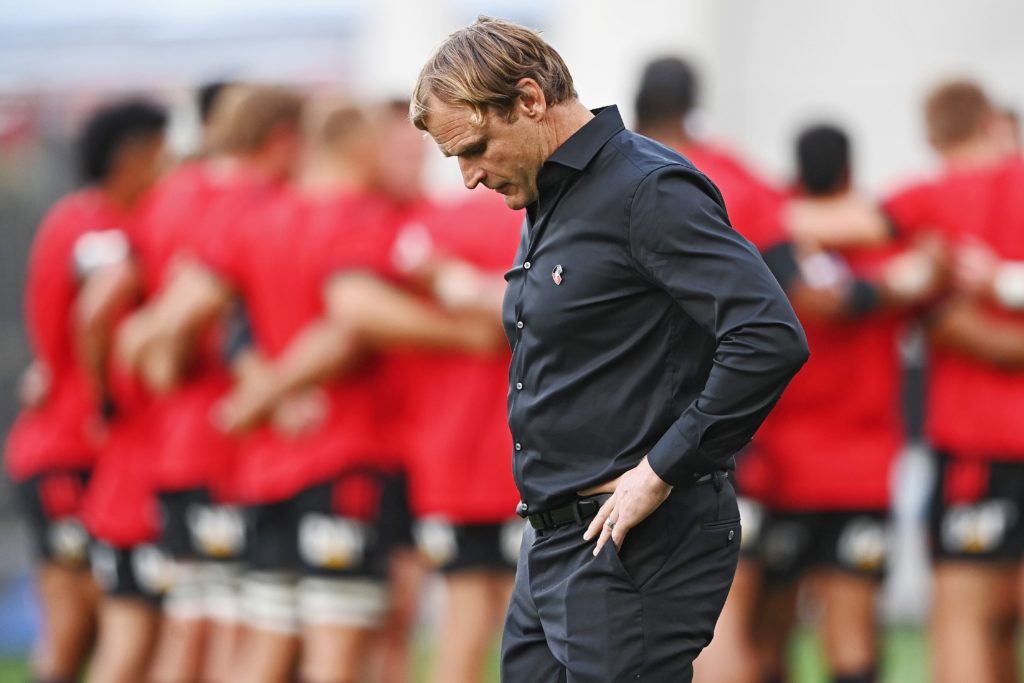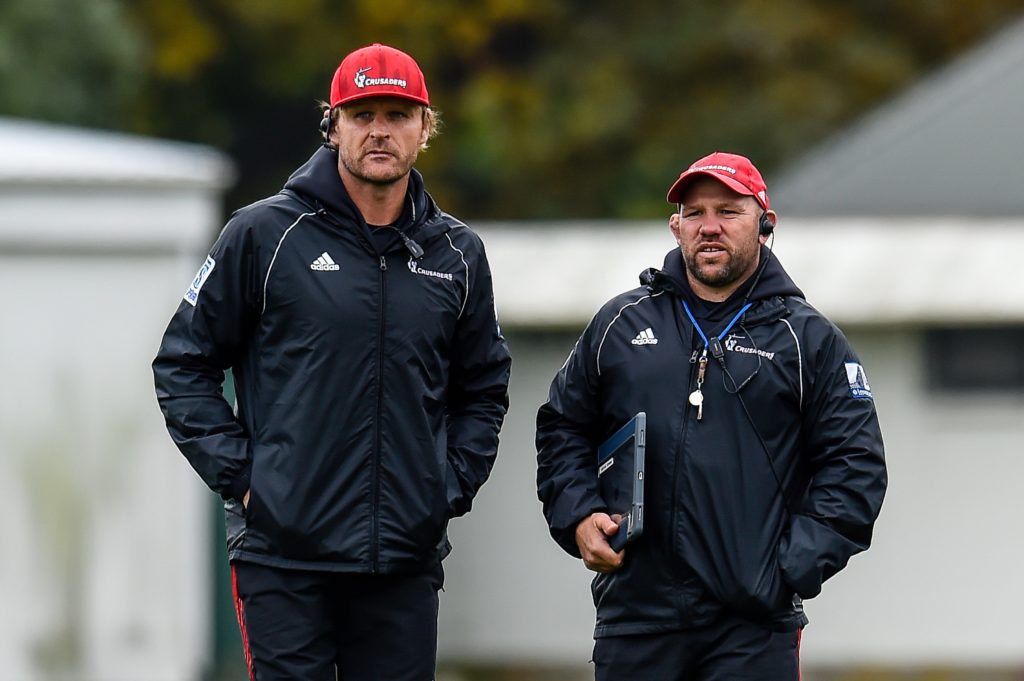Another title for the Crusaders and seemingly, at least, another giant step forward for Scott Robertson in his quest to become the next All Blacks coach.
His record is remarkable – five campaigns and five championships. No one in the history of Super Rugby has achieved anything like that. The last two titles secured by the Crusaders have come in Super Rugby Aotearoa which, in time, critics will no doubt try to reduce in significance given it only contains five teams.
But there’s a strong argument to be made that winning Super Rugby Aotearoa – playing in the demonically, frenzied world of New Zealand’s best where the intensity never lapses – is harder than winning the old format where there were easy beats such as the Sunwolves, Rebels and whichever South African side was inevitably struggling at the time.
It’s the same argument that is made in football that it is harder to win the European Championship than it is the World Cup; or harder to qualify for the US track and field team than it is to win an Olympic medal in the same event.
The Crusaders won because they were the best team. They played creative rugby off a foundation of a strong set-piece and as much as the players did their bit, so too did the coaching staff.
Besides, Robertson can’t set the standard of the opposition or change the format. He can only prepare his side to face what the organisers say they must face and five wins in five attempts is undeniably brilliant.
He couldn’t have done any more to press his claim that he’s ready for test football, given the champion Crusaders showed their usual vast range of qualities.
They had a tight five that was mostly dominant. The scrummaging wasn’t quite as destructive as in previous years, but it was always at an impressive standard.
The lineout was accurate and it was apparent in the final that the Chiefs were rattled on the touchline – opting to three times try to throw over the top to fly-half Damian McKenzie.

There were passages of supremely good hit and run work by the pack – ball carriers finding weak defensive shoulders in the middle of the field and off-loading out of contact while the backs ran straight and passed well all campaign.
Liecester Fainga’anuku emerged as a genuine test option in the midfield, David Havilli confirmed he is the new Ben Smith – the most versatile footballer in the country. Will Jordan was untouchable at times and Sevu Reece came back to life as a deadly finisher and clever enabler.
And then of course there was Richie Mo’unga. A magical presence at No 10 who was all composure and class and capable of waving a magic wand when his team desperately needed something special.
The final turned on his three successive acts of brilliance. Reduced to 13 men mid-way through the second half and only two points ahead, Mo’unga dropped a goal, made a scintillating line-break and then raked off 60 metres with a momentum-changing clearance kick.
The Crusaders won because they were the best team. They played creative rugby off a foundation of a strong set-piece and as much as the players did their bit, so too did the coaching staff, especially Robertson who steadied the ship after a mid-campaign wobble that saw them lose, win by a golden point and then lose again in three successive weeks.
I’ve asked a few questions around the All Blacks job and what it will look like, what timing. We’ve talked to the coaching group that I took [to the interview process] last time, and we’re still well aligned. But things can change, so we’re just making sure we get a lot more of those answers back from those questions.
Scott Robertson on his future in New Zealand
By Crusaders’ standards, this was a crisis and they weathered it, confirming that Robertson has the ability to respond to pressure: that he can analyse, fix and improve – qualities that are imperative at test level where prolonged underperformance simply can’t be tolerated.
And yet as much as he stated his claim to be the next All Blacks coach, whether he’s any closer, however, to actually landing the role is less certain.
In fact, he’s probably not. All he’s actually done is intensify the pressure on incumbent Ian Foster to deliver results this year.
But that pressure to win exists regardless of what other candidates are hoping to take the job, so little has really changed from Foster’s perspective either. He is no more or less vulnerable on the back of the Crusaders’ fifth title and his future depends, as it always has, on his ability to deliver a strong series of performances this year.
There is also the issue that there remains no clarity about Robertson’s immediate contract intentions.

A few weeks back he hinted that he’s interested in staying with the Crusaders, and that his decision on whether to do so may be influenced greatly by what happens with the Silver Lake proposition to buy a stake in the commercial rights of the All Blacks for $388m.
He didn’t spell it out as such, or state it explicitly, but he gave the impression that the game being flooded with cash would make him more likely to stay.
The prospect of being in charge of a cashed-up Crusaders and or a cashed-up All Blacks is something that would tickle the fancy of any ambitious coach.
“The next couple of days is pretty big around the Silver Lake deal,” Robertson said. “We are getting close, but the Silver Lake deal is a pretty important part of re-signing.
“Just see what it [the deal] means, if it is or isn’t [accepted], and what does it look like on the side of that with the next All Blacks role coming up?
“I’ve asked a few questions around the All Blacks job and what it will look like, what timing. We’ve talked to the coaching group that I took [to the interview process] last time, and we’re still well aligned. But things can change, so we’re just making sure we get a lot more of those answers back from those questions.”
When [Robertson] interviewed for the role in late 2019, his personal credentials were deemed strong and compelling, but he didn’t present a wider coaching team that was of the same calibre as the one Foster did.
It’s possible that the Silver Lake proposition could be resolved at about the same time as the trans-Tasman Super Rugby competition finishes and Robertson has further hinted he won’t be thinking about his future until his commitments for the season are done and dusted.
“I know we’re disliked immensely,” Robertson told media after the Super Rugby Aotearoa final “But you’d like to think we’re respected for what we’ve done. And to stay hungry for so long and turn up every day, I’m just really proud to coach this team, and it’s only half a season done.”
But above all else, the real reason Robertson hasn’t actually put himself any closer to promotion is that he hasn’t necessarily – not definitively at least – presented a solution to what New Zealand Rugby perceive to be the biggest problem in his quest to land the All Blacks job.
When he interviewed for the role in late 2019, his personal credentials were deemed strong and compelling, but he didn’t present a wider coaching team that was of the same calibre as the one Foster did.

Foster, not only had eight years with the All Blacks, he had Greg Feek’s long association with Ireland as well as John Plumtree’s various international roles to bolster his case.
Foster’s team had a wider range of experience and exposure to international rugby, whereas Robertson was offering to work with Leon MacDonald and Jason Holland – two young, promising coaches.
Both have great potential, but it was perhaps too soon for them to be considered ready to step into test football and hence Robertson, a little like another favourite Crusaders coach of the past, Robbie Deans, lost out because his wider team was not deemed strong enough.
And there is the nub of this whole issue. If Robertson is to actually move his case forward, he needs to either re-think his wider coaching team or hope that his chosen group can now be considered more impressive than they were two years ago.
Is the picture significantly different now than compared with 2019? It’s hard to know and if the All Blacks deliver strong results in the first half of their season, the question about Robertson’s readiness to take over will be rendered moot.
A re-think is going to be difficult as no high profile or obvious candidates have suddenly become available.
Robertson will more likely have to make an argument that MacDonald and Holland – the respective head coaches of the Blues and Hurricanes – are two years more experienced and wiser than they were in 2019 and therefore have stronger credentials.
His Crusaders forwards coach Jason Ryan, who was also on the original ticket, has shown he can consistently produce results.
Is the picture significantly different now than compared with 2019? It’s hard to know and if the All Blacks deliver strong results in the first half of their season, the question about Robertson’s readiness to take over will be rendered moot.
Robertson has produced miracles with the Crusaders, but he may have to be patient in his quest to win the All Blacks job.


Comments
Join free and tell us what you really think!
Sign up for free